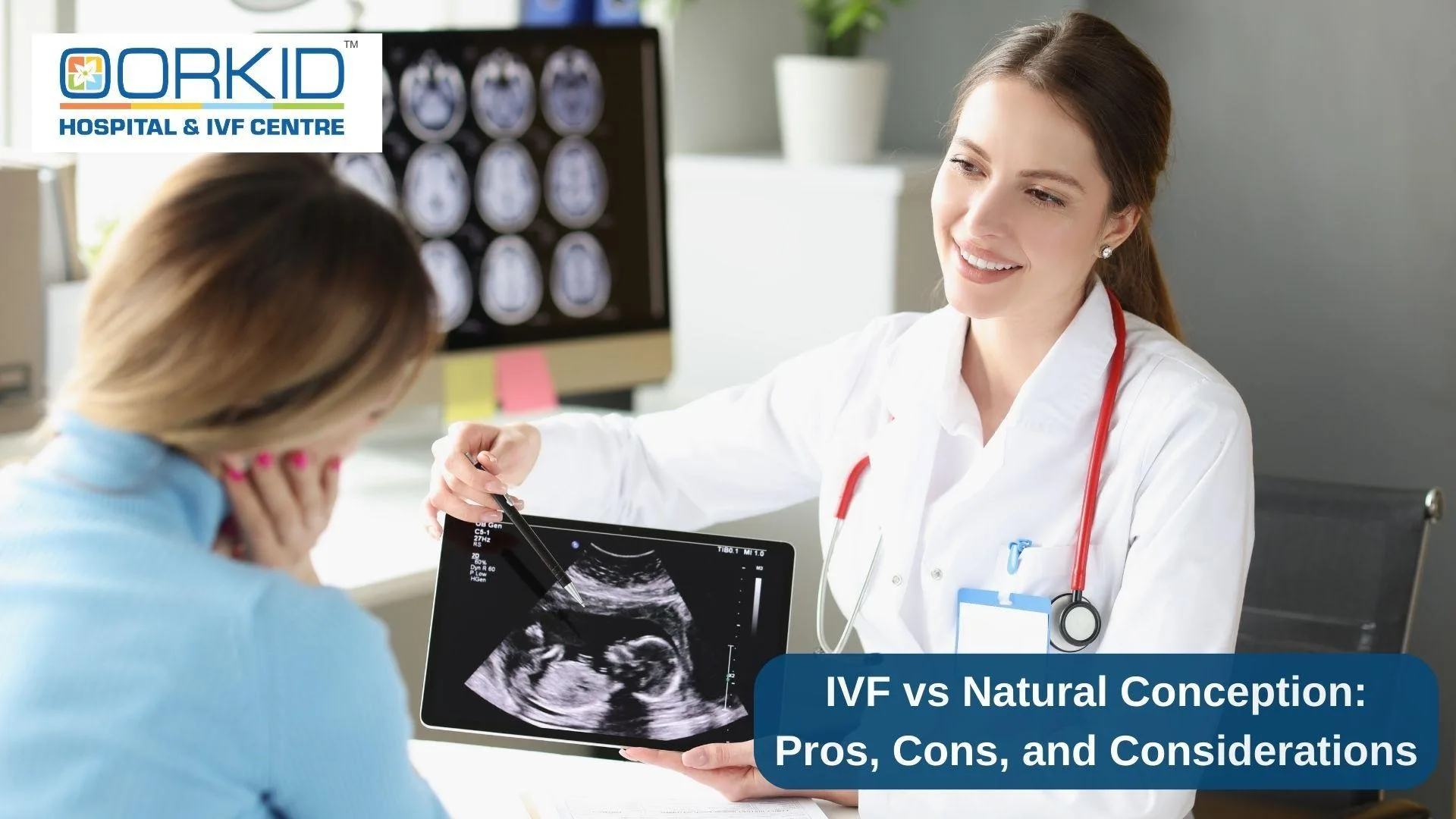Fertility challenges affect many couples, with male factors playing a role in nearly 40–50% of cases. While age, lifestyle, and genetics can all impact male fertility, alcohol consumption is one factor that has significant, and often underestimated, effects on reproductive health. Our fertility specialists from Oorkid Hospital & IVF Centre, one of the best infertility centres in Surat, help us in understanding how alcohol affects male fertility. This can help men make informed choices, especially if they are planning to start a family.
How Alcohol Affects Male Fertility
Alcohol consumption affects male fertility in various ways, from hormonal imbalance to sperm health. Let’s take a closer look at some of the primary ways in which alcohol impacts male reproductive health.
1. Disruption of Hormonal Balance
Hormones play a critical role in male fertility. The hypothalamus, pituitary gland, and testes work together to regulate testosterone and other hormones essential for sperm production. Dr Kaajal Mangukiya, one of the best gynecologists in Surat, advises against consuming alcohol because, “Alcohol interferes with this hormonal balance by reducing the body’s ability to produce testosterone, the primary male sex hormone responsible for libido, energy, and sperm production.”
Heavy alcohol use can lead to a significant reduction in testosterone levels and increase the production of estrogen, the primary female sex hormone. An imbalance in these hormones can result in lower sperm production, reduced sex drive, and other issues related to fertility.
2. Reduction in Sperm Production and Quality
Sperm count, motility (movement), and morphology (shape) are the three primary factors determining sperm health, say the fertility specialists from Oorkid Hospital & IVF Centre which is well-known as one of the best IVF centres in Surat. Alcohol consumption has a direct, negative impact on each of these factors:
● Sperm Count: Studies show that alcohol can reduce overall sperm count. Regular alcohol intake has been associated with fewer healthy sperm, making it more challenging for men to conceive with their partners.
● Sperm Motility: Alcohol affects sperm’s ability to swim effectively toward the egg. Reduced motility makes fertilization less likely, and the risk of infertility increases as a result.
● Sperm Morphology: Alcohol use can also cause changes in sperm structure. Sperm with abnormal shapes may struggle to penetrate and fertilize an egg, further complicating conception efforts.
3. DNA Damage in Sperm Cells
The genetic material carried by sperm cells is essential for a healthy conception and pregnancy. Studies have shown that alcohol can lead to oxidative stress, which increases the likelihood of DNA fragmentation in sperm. DNA damage in sperm cells can lead to miscarriage or developmental issues in offspring. Additionally, damaged DNA in sperm can reduce the likelihood of successful fertilization and embryo development, shared our experts from the best IVF hospitals in Surat — Oorkid Hospital & IVF Centre.
4. Effects on Libido and Erectile Function
Alcohol affects libido and sexual performance. Although low amounts of alcohol may initially reduce inhibitions, higher levels of alcohol impair both libido and erectile function. Chronic heavy drinking is associated with erectile dysfunction (ED), a common condition where a man has difficulty achieving or maintaining an erection. ED not only affects fertility by reducing the chances of successful intercourse but can also strain the relationship, adding emotional stress to fertility challenges.
How Much Alcohol is Safe?
Studies suggest that light to moderate alcohol consumption (up to 1–2 standard drinks per day) may have a less detrimental effect on male fertility than heavy or binge drinking. However, our specialists at Oorkid Hospital & IVF Centre, the best test tube baby centre in Surat have noticed that even moderate drinking can potentially influence sperm quality. For men who are actively trying to conceive, it is generally recommended to reduce or eliminate alcohol intake to maximize fertility potential.
Tips to Improve Male Fertility
Reducing alcohol intake is one of several lifestyle changes men can make to improve fertility. Here are some additional steps to consider:
- Maintain a Healthy Diet: A diet rich in antioxidants (fruits, vegetables, whole grains) supports sperm health by combating oxidative stress.
- Exercise Regularly: Regular physical activity can help maintain a healthy weight and hormonal balance.
- Avoid Smoking: Smoking has also been linked to lower sperm quality and count, so quitting can have a significant positive impact.
- Reduce Stress: Stress management techniques like meditation, yoga, and counseling can help improve hormonal balance and overall fertility.
- Get Enough Sleep: Quality sleep is essential for maintaining hormonal levels, including testosterone production.
Final Thoughts
Alcohol consumption can have a serious impact on male fertility, affecting hormone balance, sperm quality, and DNA integrity. While occasional moderate drinking might not have the same adverse effects as heavy drinking, it is advisable for men to limit alcohol intake if they are trying to conceive. The best gynos in Surat recommend adopting a healthier lifestyle and reducing or avoiding alcohol can help optimize male fertility and improve their chances of successful conception.




